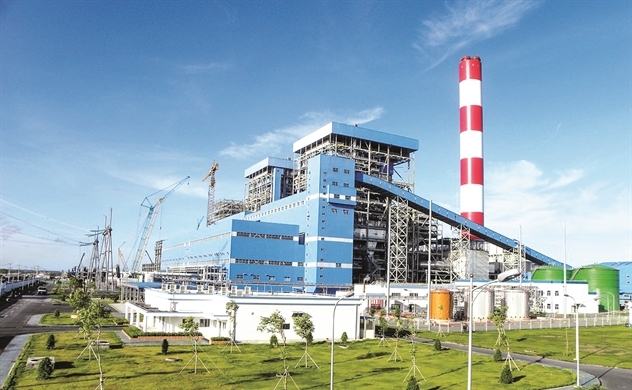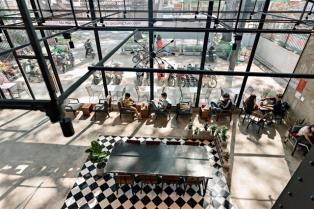Companies’ annual general meetings are likely to be delayed this year with many saying they have not yet set a date, banks have taken advantage of the situation to expand their online services to mitigate its effect on their business.

Companies’ annual general meetings (AGMs) are likely to be delayed this year with many saying they have not yet set a date for it.
They are usually held in the first quarter of the year or latest by April as most companies end their fiscal year on December 31.
Analysts attributed the delay to the new coronavirus epidemic sweeping across the world including Viet Nam, saying many enterprises need more time to review their business strategies in the new year as economic growth is likely to be hit hard by the outbreak.
The general director of a company listed on the Ho Chi Minh Stock Exchange said while it is planned to organise the AGM in March, it might be delayed because the company has to wait for the audited 2019 results and reconsider business plans for this year.
Since it is involved in the logistics sector, its business relies much on the international situation, he explained. The new coronavirus epidemic has hit its business with China, forcing it to shift to other countries, and consequently, costs have increased significantly, he said.
The Pha Lai Thermal Power Joint Stock Company has also delayed its AGM, with a spokesperson saying this is because it is negotiating power prices with Vietnam Electricity.
According to the Bank for Investment and Development of Viet Nam’s Securities Company, many companies that have been impacted strongly by COVID-19 have to amend their business plans for the year.
They include companies in sectors like seaports, aviation and fisheries such as Gemadelpt Corporation, Container Viet Nam (VSC) and Hai An Transport & Stevedoring Joint Stock Company (HAH).
Analysts, however, expected banks to be the first to hold AGMs this year.
By February 14 seven listed banks had announced the final list of shareholders for the AGM including BIDV, Vietcombank, Eximbank, and ACB.
Many experts have called for organising AGMs online saying technology would easily permit that.
In any case, most shareholders are absent at AGMs due to different reasons that make them cannot attend the meetings.
The Law on Enterprises allows e-voting.
The idea of online AGMs is gaining traction among companies, investors and regulators, but not many companies are still ready to invest in technology and not all shareholders are technology-savvy.
A spokesman for the Viet Nam Securities Depository said e-voting and online AGMs are inevitable in future since it would help cut costs significantly.
In Viet Nam, no company has yet held online AGMs online, though some have organised semi-online meetings which allow some shareholders to vote via the internet.
Upside of COVID-19: Banks push online services for safety reasons
As the COVID-19 epidemic continues to rage, many banks have taken advantage of the situation to expand their online services to mitigate its effect on their business.
The Maritime Commercial Joint Stock is advising its customers to use its online services to ensure safety while enjoying their convenience and attractive promotions.
Kien Long Commercial Joint Stock Bank has also encouraged its customers to use online products and services like opening and renewing savings accounts, depositing money in their accounts and account settlement on smart devices.
Customers can also borrow against their deposit online.
BIDV is offered 100 per cent waiving charges for customers carry out transactions using its Smart-Banking and BIDV Online services to encourage customers to shift from its counters to e-banking.
Experts said banks’ efforts to push customers online is in response to an appeal by the State Bank of Viet Nam (SBV) to reduce transactions at counters to minimise new coronavirus infection risks.
The central bank has instructed credit institutions to actively provide online payment applications so as their customers are easier to access their online banking services and reduce or waive fees for online services.
The National Payment Corporation of Viet Nam (NAPAS) also announced fee waivers and reductions for banks for electronic switching.
NAPAS said this would reduce revenues by at least 15 per cent this year but help fight COVID-19.
The company also said it started a programme from February 25 to help develop local cashless payments and advance the Government's plans to encourage electronic payments for public services during the epidemic.
It will apply free switching for online transactions, including payments for public services, performed on the national public service portal, public service portals of ministries, departments, and local agencies until December 31 this year.
It will offer a discount of 72 per cent on switching fees for interbank quick currency transfers worth VND500,000 (US$21.3) or less, meaning a reduction of VND500-1,800 for a transaction.
Experts said online products and services being launched by credit institutions are beneficial for both them and their customers amid the rapid spread of COVID-19.
The epidemic offers them a good chance to push these, they said.
The move would thus help the banking sector achieve the targets set out under the SBV’s non-cash payment plans for the 2016-20 period.
They include reducing the ratio of cash payments to below 10 per cent by the end of this year and having more than 300,000 card readers installed at merchants’ establishments to process some 200 million transactions a year.
It requires all supermarkets and modern retail outlets to have card readers. — VNS





